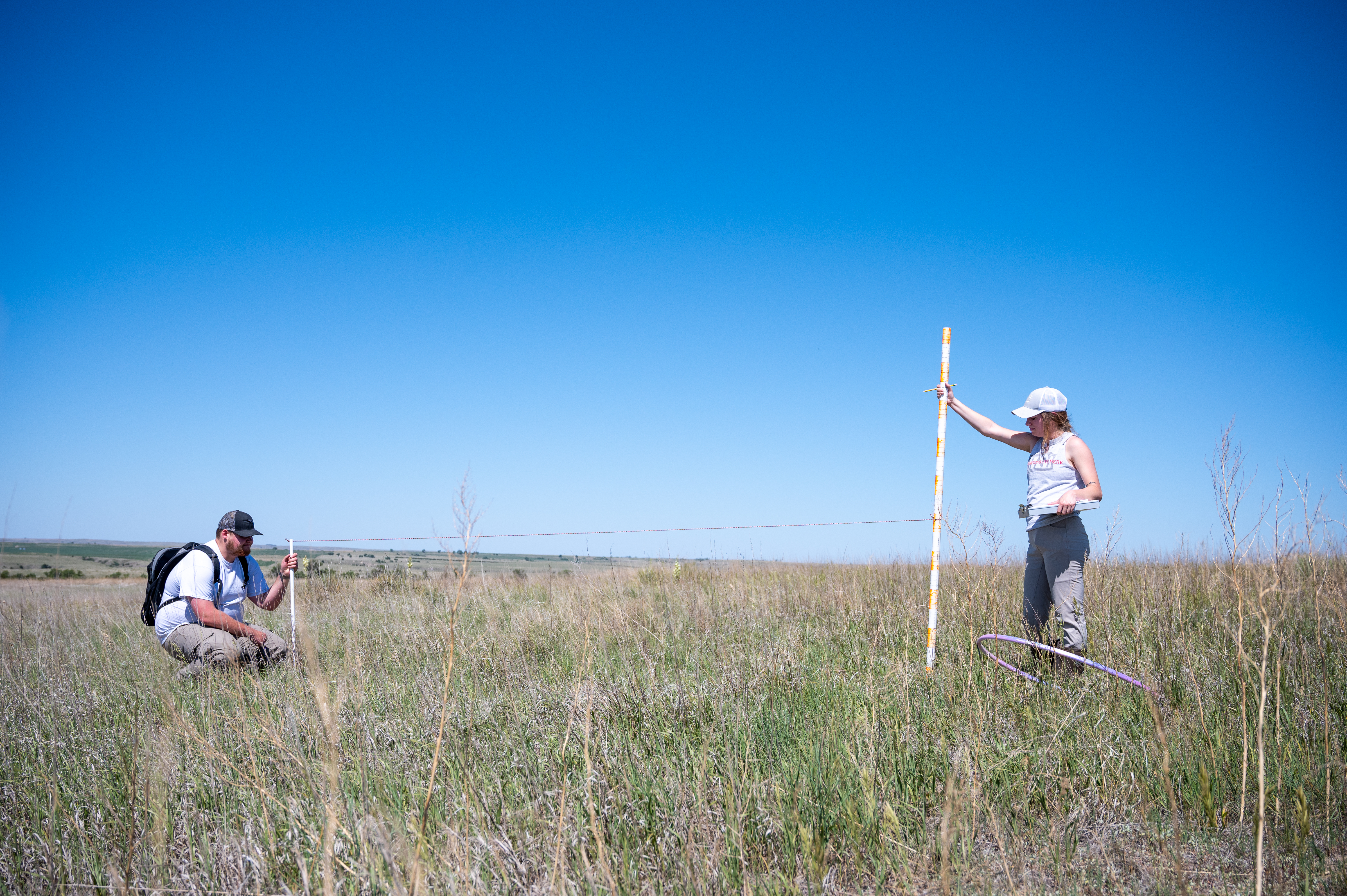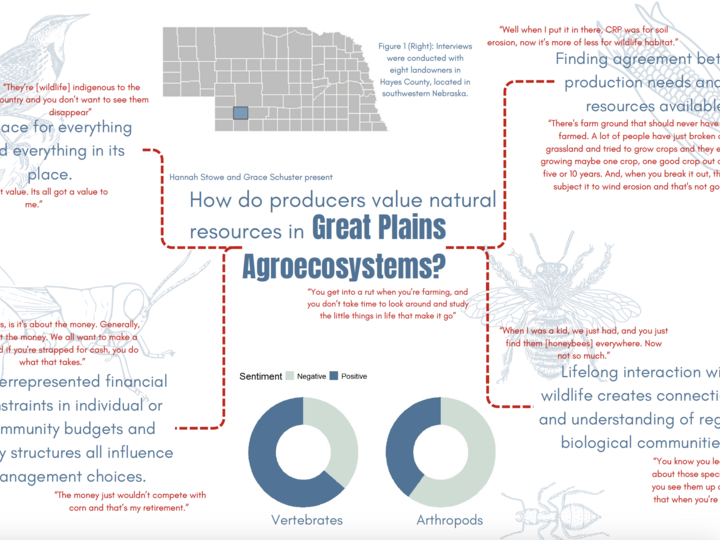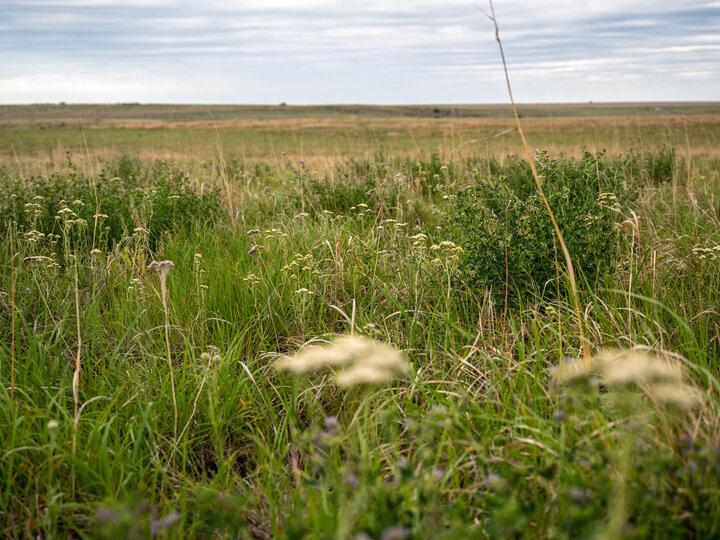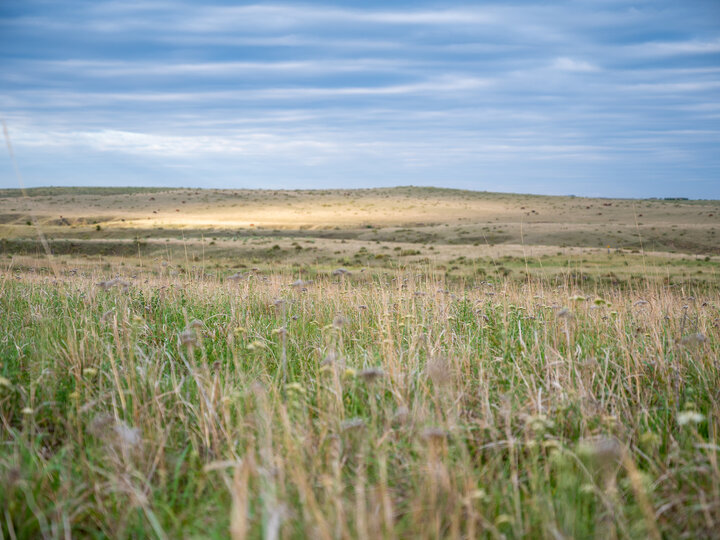Project Details

Photo by Iris McFarlin
Project Team
Graduate Students
Undergraduate Students
- Samantha Garcia (UCARE, Cabela's Apprentice)
- Jay Cleveland (UCARE)
Research Technicians
- Hunter Swanson
- Ryan Lamont
- Wyatt Ervin
Collaborators
- Andrew Little
- Larkin Powell
- Christopher Chizinski
- Robert Mitchell
- Karina Schoengold
- Lee Walson
Funding Source
Overview
Main goals of the project:
Establishing effective conservation strategies for grassland bird communities in bioenergy production systems while maximizing productivity of the agricultural landscape.
Why is this research needed?
Agricultural intensification is expected to increase in response to the growing human population and our nutritional and energy demands. However, this transformation can have devastating effects on the environment. Furthermore, the conversion of historic grassland habitat to row-crop production has led to the decline of grassland bird populations. Producers everywhere are facing challenges to meet food and energy production, sustain agriculture systems, and conserve grassland bird communities. A solution to these issues is utilizing perennial grass for bioenergy crop production. Perennial grass is an alternative bioenergy source that is renewable, produced domestically, has the power to diversify rural economies, and consumes less resources.
How will this research help?
There is a critical need to improve our knowledge on how perennial grassland cropping systems influence avian species richness. With this new information, grassland bird conservation in agricultural-dominated landscapes can improve while increasing overall cropland profitability.
Project Updates


